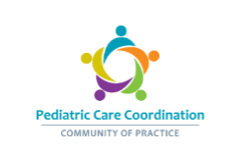Children and Youth with Special Health Needs (CYSHN)
Programs
- Birth Defects Monitoring and Analysis
- Early Hearing Detection and Intervention
- Follow Along Program
- Longitudinal Follow-up for Newborn Screening Conditions
Related Sites
Contact Info
Children and Youth with Special Health Needs
Children and Youth with Special Health Needs (CYSHN) staff work together to champion the health and well-being of people living in Minnesota with special health needs and disabilities from the earliest stages of life through transition to adulthood.
CYSHN programs and focus areas
 Birth Defects Monitoring and Analysis gathers data about selected birth defects diagnosed in the first year of life, estimated to affect over 2,000 babies born in Minnesota each year.
Birth Defects Monitoring and Analysis gathers data about selected birth defects diagnosed in the first year of life, estimated to affect over 2,000 babies born in Minnesota each year.
Early Hearing Detection and Intervention (EHDI) works to improve access to and quality of services for children who are deaf or hard of hearing. EHDI works with birth hospitals and midwives to make sure that all newborns have access to hearing screening.  The EHDI program also helps families of children with hearing loss connect with educational, social, and community resources.
The EHDI program also helps families of children with hearing loss connect with educational, social, and community resources.
Follow Along Program (FAP) can help families track their child's development and let them know if their child is playing, talking, growing, moving, and behaving like other children the same age.
 Longitudinal Follow-up for Newborn Screening Conditions (LFU) builds the capacity of systems that serve families of children and youth with special health needs who are identified through newborn screening.
Longitudinal Follow-up for Newborn Screening Conditions (LFU) builds the capacity of systems that serve families of children and youth with special health needs who are identified through newborn screening.
Transitioning to Adult Healthcare can be challenging for those with health complexities. Laying the groundwork for successful lifelong, positive health outcomes is a shared responsibility by health care systems, providers, adolescents, and families. This page details the need to ensure youth with special health needs are able to make this transition successfully.
Family Support Organization Collaborative is a space where family support organizations come together to collaborate, share knowledge, and build lasting partnerships. Through our gatherings, we co-create strategies to better serve families with children and youth who have special health needs and disabilities. Our goal is to improve systems by leveraging the collective wisdom and resources of organizations across Minnesota.
 Pediatric Care Coordination: Community of Practice provides a way for care coordinators to network, collaborate, share, and learn from each other. These activities build the capacity of systems that serve families of children and youth with special health needs.
Pediatric Care Coordination: Community of Practice provides a way for care coordinators to network, collaborate, share, and learn from each other. These activities build the capacity of systems that serve families of children and youth with special health needs.
Advisory groups
Maternal and Child Health Advisory Committee provides guidance on the health care needs of mothers and children throughout the state of Minnesota. Task Force work includes providing recommendations on preconception health strategies and activities related to supporting children and youth with special health needs.
Newborn Hearing Screening Advisory Committee provides guidance in developing protocols and timelines for screening, rescreening, and diagnostic audiological assessment as well as early intervention services for children who are deaf or hard-of-hearing.
Newborn Screening Advisory Committee provides advice and recommendations concerning tests and treatments for heritable and congenital conditions found in newborns, including making informed recommendations to add new disorders to the newborn screening panel.
Minnesota Interagency Developmental Screening Task Force is a statewide coordination of screening efforts and consistent developmental screening standards. The vision of the task force is for all children in Minnesota to be at their optimal health and development and ready to learn.